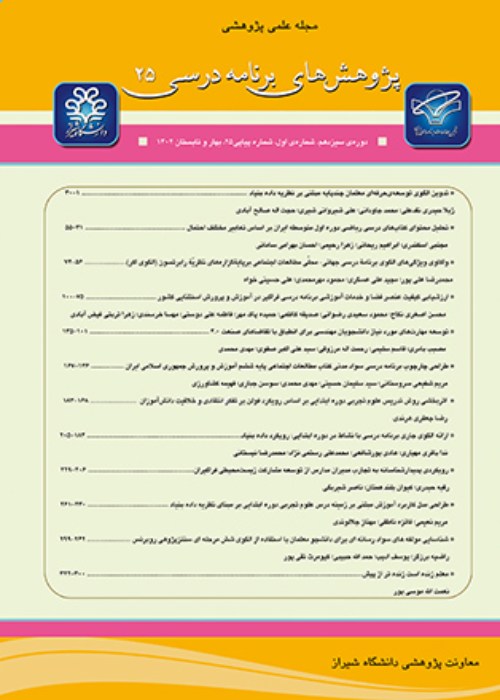Identifying the Indicators of Objectives of the Fourth Generation University Curriculums in Iran
Universities can be divided into four generations based on some specific approaches and executive structures corresponding to such approaches. First generation universities, or educationbased universities, second generation universities, or research-based universities, third generation universities, or innovative, technology and entrepreneurial universities, and fourth generation universities, or universities which place emphasis on improving technology and innovation, valuing creation, and promoting welfare. Concerning fourth generation universities are the center of all scientific, technological and cultural developments in each country and have an active and initiating role in connecting the country to the world. Universities can achieve their missions and goals only if they design and implements their curriculums based on the existing facts, capacities and facilities and the appropriate standards and if they take the rapid development of science and technology into account. One of the main goals of higher education is to harmonize the elements of the curriculums with the specialized development and requirements of the society. Such requirements are evolving in line with the development of knowledge and technology. Fourth generation universities provide the ground for encouraging improvement, and thus the curriculum, as the heart of higher education, should be in line with the indicators of the academic objectives. Previous studies have focused on different dimensions of social responsibilities of universities. A number of studies have also investigated different roles of universities in local and regional development. However, it seems that few studies have considered the subjects of fourth generation universities and fourth generation university curriculums and its related elements in higher education. Given the scientific and practical background of the fourth generation university, the present study sought to identify the indicators of the objectives of the fourth generation university curriculums in Iran. This study benefitted from a qualitative approach to research. The statistical population of the present study were experts in the field of higher education, fourth generation university and curriculum development. Snowball sampling was then used for the seclection of the participants in this study, i.e. 20 experienced and knowledgeable professors in the field of curriculum development and fourth generation university. Among the participants, 6 were females and 14 were males. Furthermore, of them, 5 were assistant professors, 9 were associate professors and 6 were professors. The data of this study was collected through carrying out semi-structured interviews with participants. Participant were interviewed individually and each interview took between 44 and 58 minutes. Data collection continued until data saturation was achieve, i.e. when no new information was provided. Vaidity and reliability of the collected data was then assessed and approved. The findings of this study, which was based on the perspective of Iranian professors, revealed that the most important indicators of objectives of the fourth generation university curriculums in Iran are employers' interaction and participation in the process of setting goals, attention to self-employment, and student entrepreneurship. Curriculum goals should be formulated based on international standards and competencies of fourth generation universities, interdisciplinary teaching approaches, innovative perspectives and new knowledge, futuristic approaches and social accountability. Given the components of the emerging discourse of fourth-generation universities, higher education is no longer confined to any specific spatial or geographical space. Today, some main concerns of universitries are to provide solutions for overcome National, regional and local crises, to reduce unemployment, to eradicate poverty, and to promote welfare for local communities. All of these can happen through the formation of a knowledge-based society which can operate with a global perspective at the regional level. As it was aforementioned, curriculum is at the heart of higher education. Furthermore, for being effective in today's world, curriculums need to be aligned with the components of fourth generation universities. From among the the curriculum components, the curriculum objective is especially important due to its comprehensiveness and its capacity for action. Based on the obtained results, it is recommended that interdisciplinary approaches be used for establishing curriculum objectives. It is further recommended that fourth generation university curriculums be examined in terms of their objectives. Furthermore, curriculums need to be continually updated based on characteristics of fourth generation universities. Finally, experienced faculty members in different departments, and industry, technology and art employers are encouraged to participate in developing curriculums.
- حق عضویت دریافتی صرف حمایت از نشریات عضو و نگهداری، تکمیل و توسعه مگیران میشود.
- پرداخت حق اشتراک و دانلود مقالات اجازه بازنشر آن در سایر رسانههای چاپی و دیجیتال را به کاربر نمیدهد.




